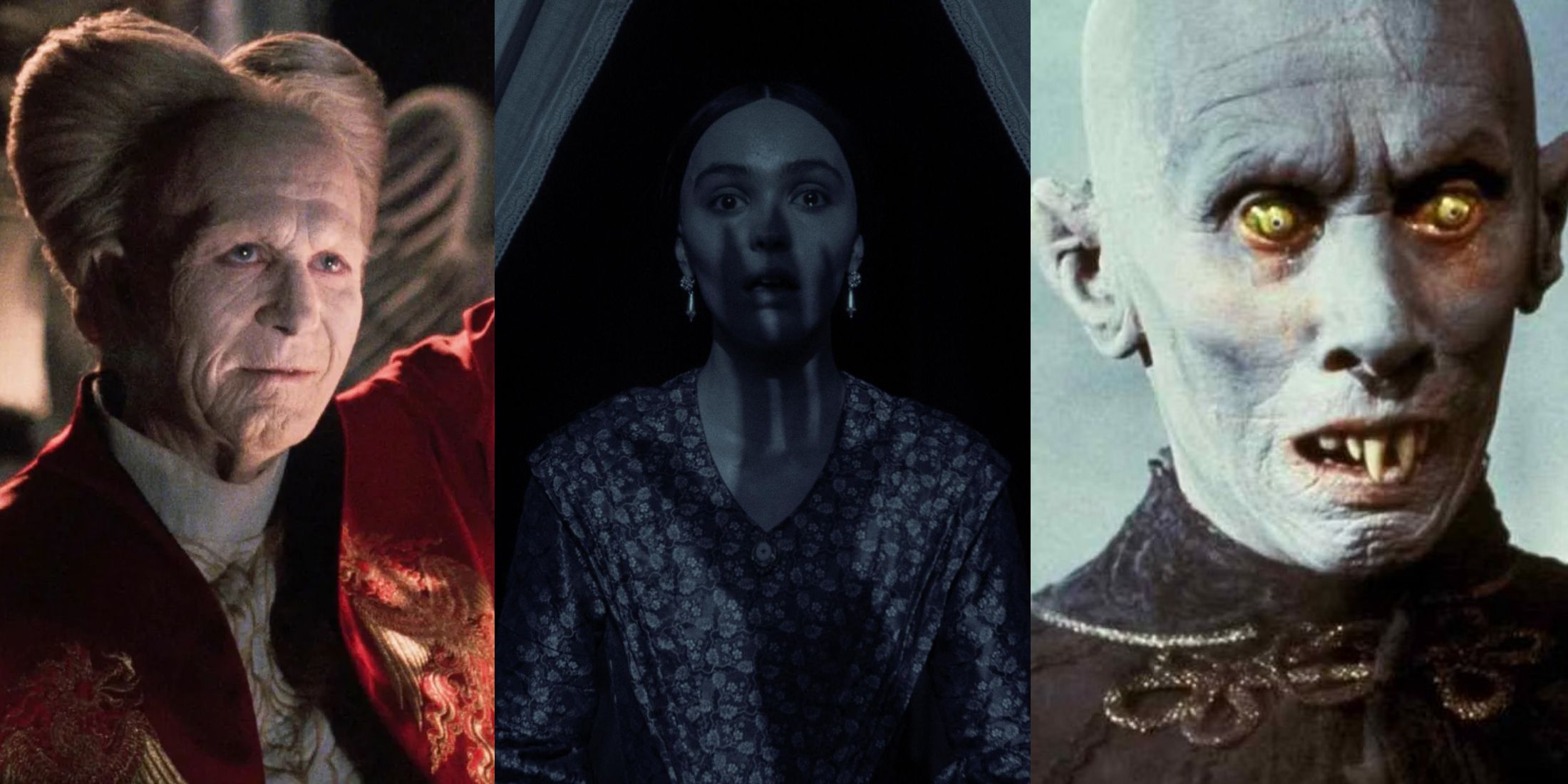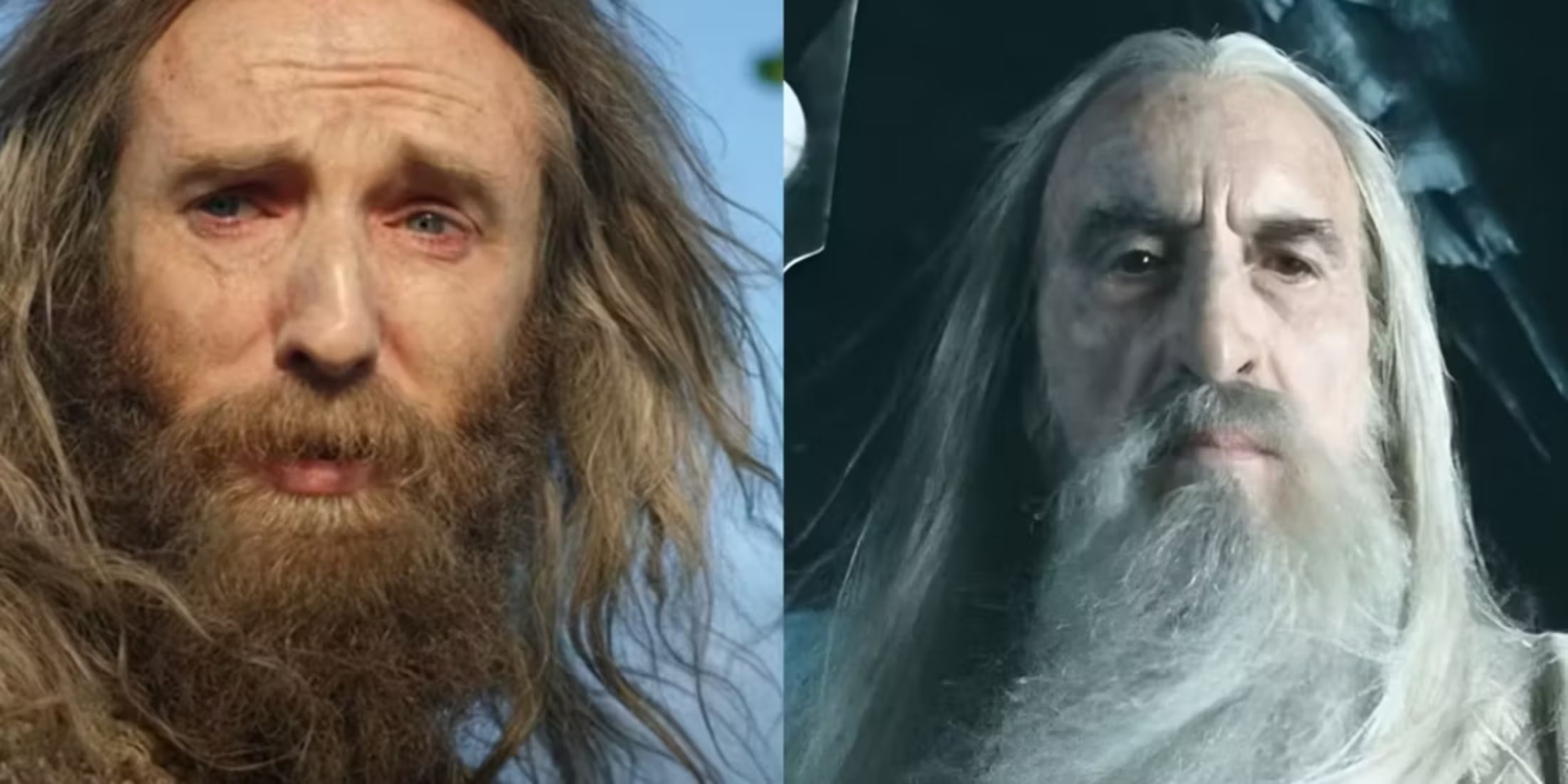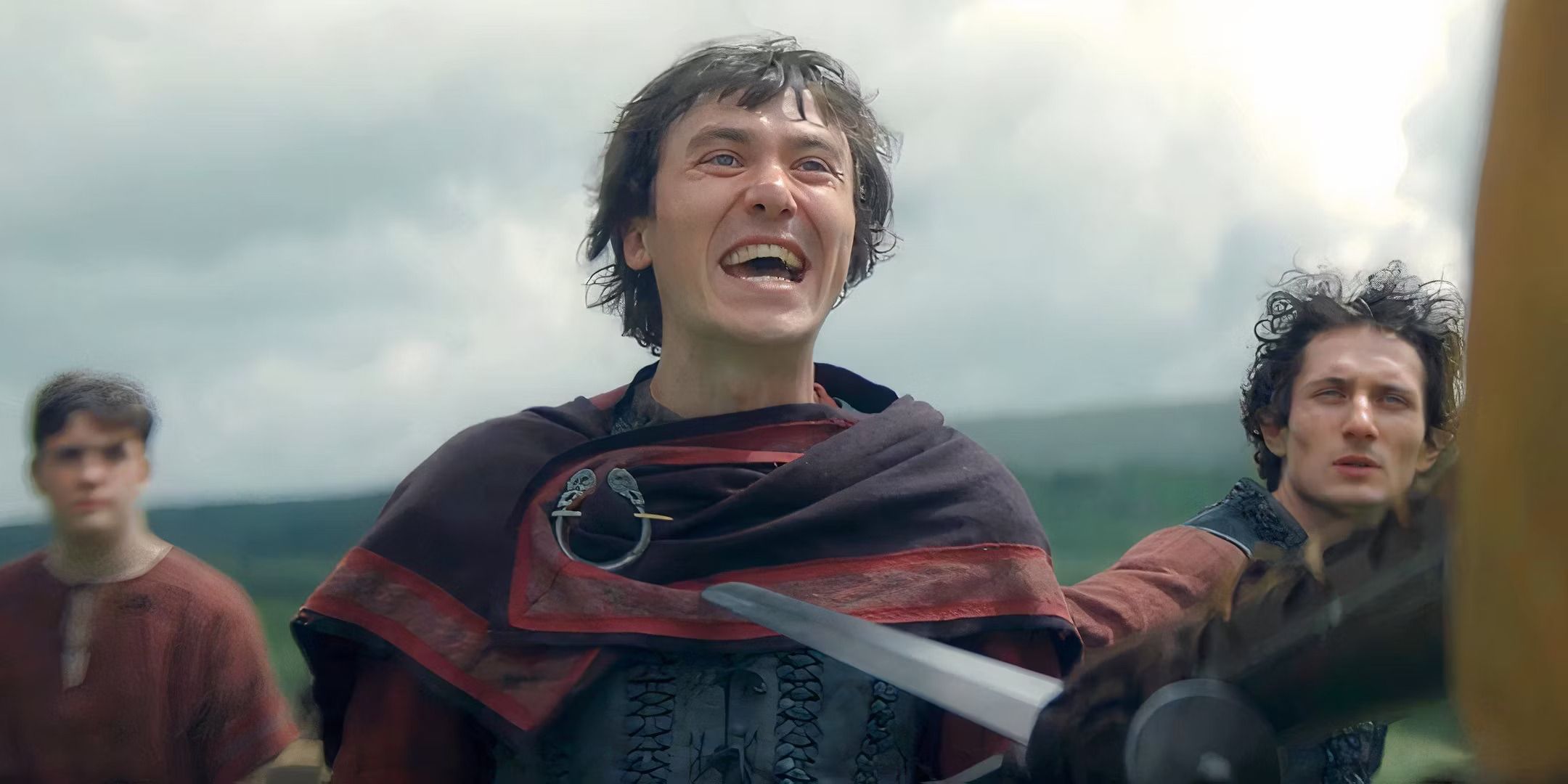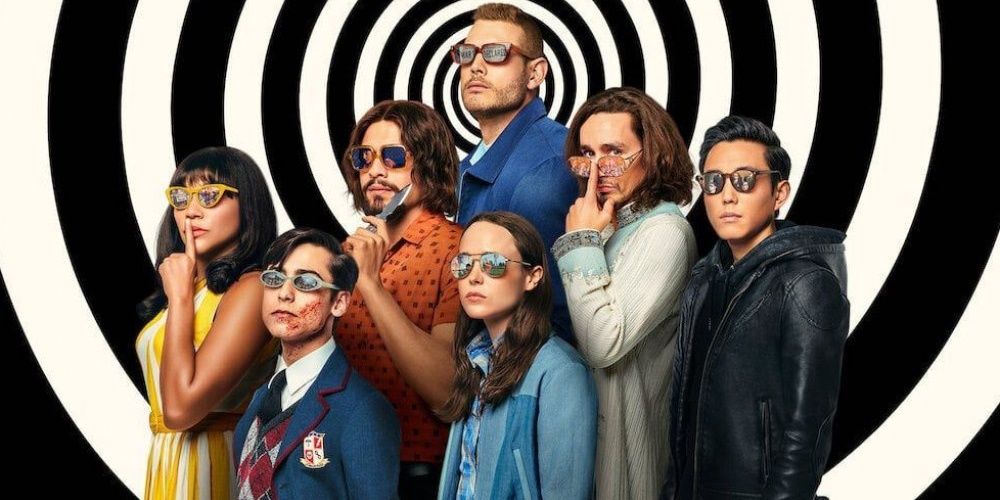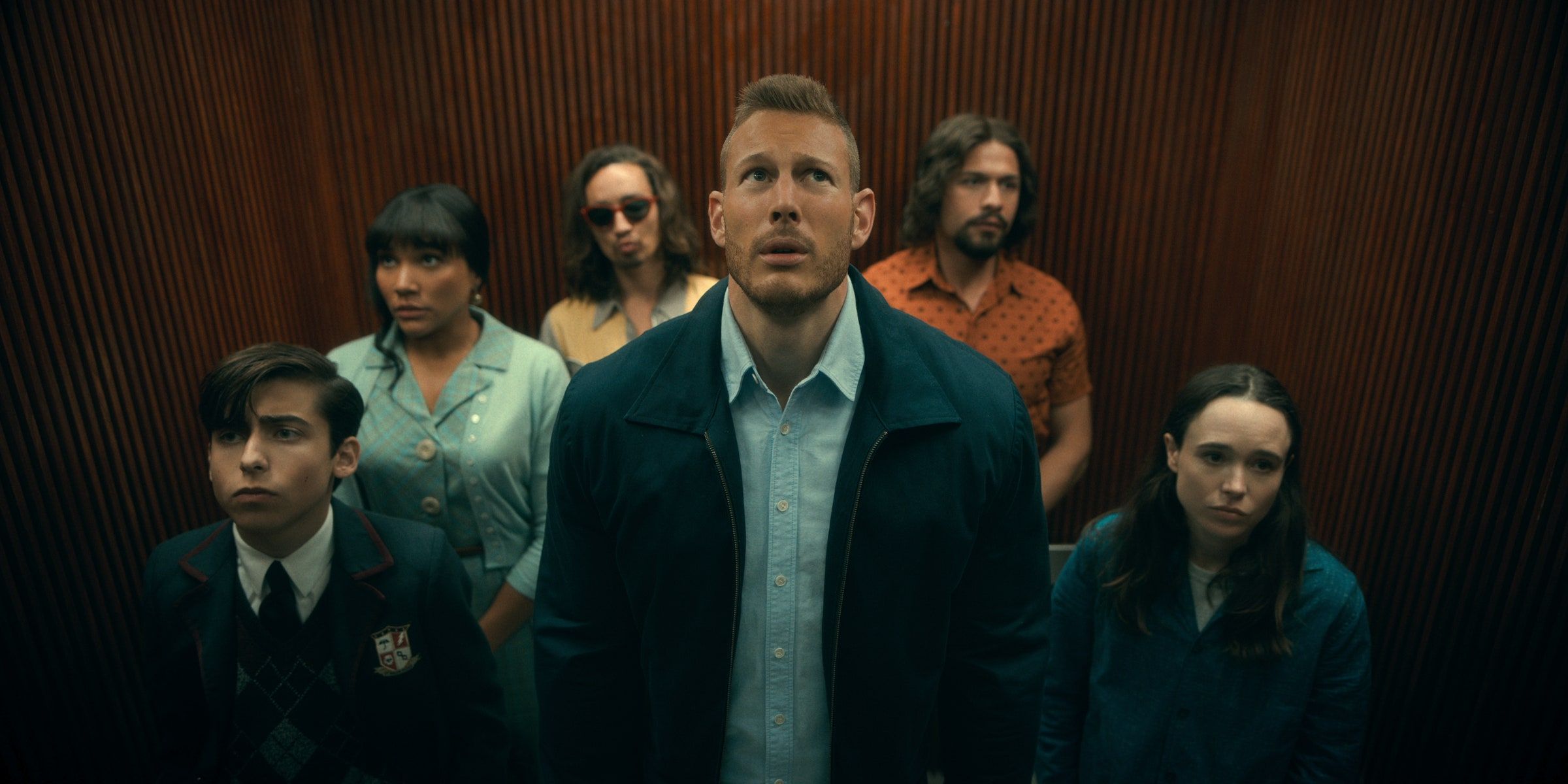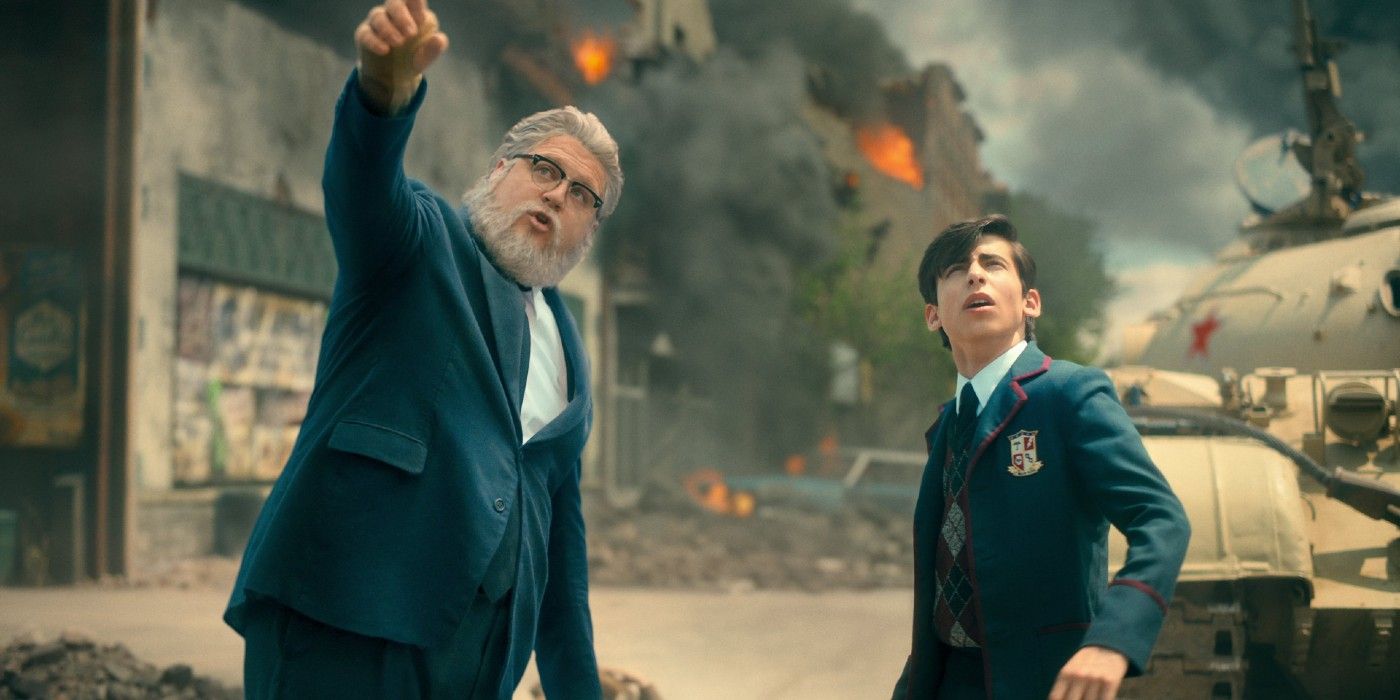There's an unfortunate trend of 80s nostalgia that boils down the entire decade to little more than silly fashion trends and classic movie quotes. Through the use of an altogether more iconic decade, The Umbrella Academy proved that setting a narrative in the past can be more than just a coat of paint.
Adapted from Gerard Way's cult-hit graphic novel series and brought to Netflix by Steve Blackman, The Umbrella Academy cleverly blends complex family drama with superhero action. Rather than stopping there, the series tosses time travel into the mix to create a series that keeps its fans guessing and makes each season a totally new experience.
For the uninitiated, The Umbrella Academy is about seven gifted people, all born on the same day and adopted by a mysterious recluse to become a family of superheroes. Unfortunately, said recluse is a cruel and careless dictator who abuses his adopted charges in various ways. The series picks up decades later after the children have grown up and all gone their separate ways. The family is dragged back together for their adoptive father's funeral and unceremoniously informed that the apocalypse is on its way. The eponymous group does their best to figure out the cause and save the world, and, in a rare moment for superhero media, fail outright. After the end of the world in the final moments of season one, experienced time traveler Five led the team in a last-ditch effort to flee to the past. To everyone's surprise, Five's powers dropped the Hargreeves family throughout various points of the 1960s.
Setting the second season of a TV show in a drastically different era from the first could come easily come across as a gimmick. The third season returns to a semi-modern setting, albeit in an alternate timeline. Works like Wonder Woman 1984, which so heavily marketed itself on its period setting that it was in the title, definitely feel like little more than a marketing scheme. The problem is simple, as is the solution. Wonder Woman 1984 and the thousand unfortunate pretenders to the throne of Stranger Things use visual and auditory references to the era they claim to represent. There are plenty of shots of old arcade games or needle drops of great pop classics, but most of these works don't have anything to say about the decade they inhabit. The Umbrella Academy fixes this problem by housing each of its characters within the period and letting them experience the history for themselves.
The members of the Hargreeves family are far-flung throughout the area and period. Klaus, the recently clean and sober medium, arrives the furthest back in time. From 1960, and with the help of his spectral brother Ben, Klaus gathers a mass of random people and forges a doomsday cult in the model of Children of God or Lyndon LaRouche. Luther left alone on the street, winds up in the employ of noted nightclub owner Jack Ruby. Ruby would go on to shoot and kill Lee Harvey Oswald, and that ticking clock remains present for the entire season. Allison is taken in by a local barbershop and finds herself fighting for racial justice a year before the Civil Rights Act. Diego attempts the masked vigilante thing before being immediately caught and institutionalized by the authorities. Vanya, eternally out of place in 2019, is part of a taboo hidden relationship as the oppressive system attempts to crackdown. And then there's Five, attempting to rally his siblings and do what he knows he must; assassinate the president.
The sixties are not set dressing for season two of The Umbrella Academy. The big events, people, forces, and trends of the era fully inform the story. Every important event is centered around the JFK assassination, from Five's direct involvement to Luther's boss's future to Diego's misguided quest to prevent it. The racial tensions of the era inform Allison's narrative and change her as a person. The oppressive law enforcement state of the Cold War US is mirrored by the shady dealings of The Commission. Vanya's powers aren't just the catalyst for the nuclear threat, they're a living metaphor as well. Civil rights, free love, political tension, seedy underworlds, state oppression, white patriarchy, these themes are endemic to the period and the story of this season.
It's fair to call The Umbrella Academy a period piece, at least in part, but it's closer to alternate history fiction. Changing the timeline is key to the narrative and will continue to be into the next season. The reason this series is so well-equipped to deal with the history of an era is partially due to its format. The separate Hargreeves family members are each full-fledged character with their own lives and goals, allowing them to go their separate ways and be a ton of fun to watch on their paths. The Umbrella Academy may not depict what it was like to live in the sixties, but it understands how to use its setting to inform the narrative, rather than to dress it up.

